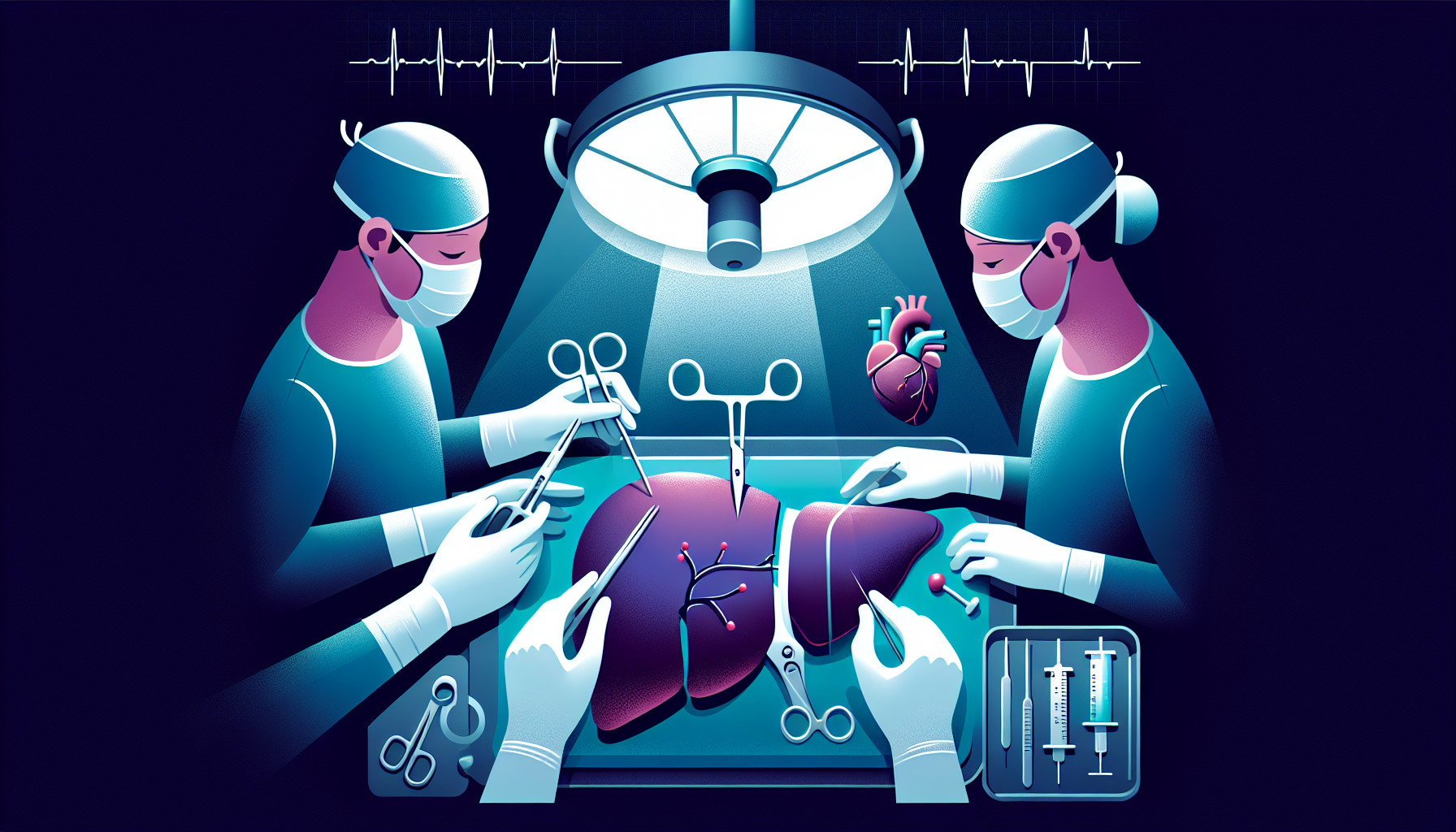Our Summary
This research paper discusses the increase in the number of people who have survived liver transplants, and how their quality and length of life are also improving. However, these individuals often have shorter lifespans and lower quality of life compared to healthy people of the same age due to factors such as heart and brain diseases, kidney failure, organ graft failure, new cancer occurrences, and recurring diseases.
Because of these risks, people who have had liver transplants need to be monitored for the rest of their lives to make sure their new organ and overall health stay in good condition. This long-term monitoring allows for early detection and treatment of any complications. Steps like keeping immunosuppression (a treatment that decreases the body’s immune response to prevent organ rejection) at an appropriate level, taking preventative measures such as using cholesterol-lowering drugs (statins), and maintaining good blood pressure and blood sugar control are all important.
This need for lifelong monitoring puts a lot of pressure on transplant units. The best way to handle this is through close collaboration between the liver transplant unit, local hospitals, and primary care teams. Other healthcare professionals, such as coordinators, pharmacists, dermatologists, and addiction specialists, can also help improve patient outcomes. Good communication between everyone involved in a patient’s care is crucial for successful monitoring.
The use of technology can enhance communication and allow for remote consultations in some cases. The best monitoring approach depends on a variety of factors, including location and local expertise. The paper also emphasizes the importance of well-funded registries at local, national, and international levels to help improve patient management.
FAQs
- What are some common causes of premature death in liver allograft recipients?
- What kind of follow-up care is needed after a liver transplant?
- How can IT be used to support the follow-up care of liver transplant recipients?
Doctor’s Tip
A helpful tip a doctor might tell a patient about liver transplant is to ensure they attend all follow-up appointments and continue to take their medications as prescribed. Regular monitoring is crucial to ensure the health of the transplanted liver and to catch any complications early. It is also important to maintain a healthy lifestyle, including a balanced diet, regular exercise, and avoiding alcohol and smoking, to support the long-term success of the liver transplant.
Suitable For
Patients who are typically recommended for liver transplant include those with end-stage liver disease due to various causes such as chronic viral hepatitis (hepatitis B or C), alcohol-related liver disease, non-alcoholic fatty liver disease, autoimmune liver disease, genetic liver diseases, and liver cancer. Other patients who may be considered for liver transplant are those with acute liver failure, certain metabolic disorders, and certain liver tumors.
It is important to note that not all patients with liver disease are suitable candidates for liver transplant, and each patient’s case must be carefully evaluated by a multidisciplinary team to determine if a liver transplant is the best treatment option. Factors such as overall health, severity of liver disease, presence of other medical conditions, and potential risks and benefits of the transplant must be considered in the decision-making process.
Timeline
Before liver transplant:
- Patient is diagnosed with end-stage liver disease and is evaluated by a transplant team.
- Patient is placed on the transplant waiting list and waits for a suitable donor organ.
- Patient undergoes pre-transplant tests and evaluations to assess their overall health and suitability for transplant.
- Patient receives a call that a suitable donor organ is available and goes in for the transplant surgery.
- Patient undergoes the liver transplant surgery and is monitored closely in the immediate post-operative period.
After liver transplant:
- Patient is monitored in the hospital for complications and signs of organ rejection.
- Patient is discharged from the hospital and enters the post-transplant recovery phase.
- Patient is prescribed immunosuppressive medications to prevent organ rejection.
- Patient undergoes regular follow-up visits with the transplant team to monitor their health and the status of the transplanted organ.
- Patient may experience complications such as infection, organ rejection, or side effects from medications.
- Patient may need additional interventions such as biopsy, imaging, or adjustments to medications.
- Patient gradually resumes normal activities and enjoys improved quality of life compared to pre-transplant.
- Patient continues to receive lifelong follow-up care to ensure the health of the transplanted organ and overall well-being.
What to Ask Your Doctor
What is the expected recovery time after a liver transplant surgery?
What medications will I need to take post-transplant and for how long?
What are the potential side effects of the immunosuppressant medications?
How often will I need to come in for follow-up appointments after the transplant?
What signs or symptoms should I watch for that may indicate rejection or other complications?
How long will it take for my liver function to fully recover after the transplant?
Are there any dietary or lifestyle changes I should make to support my new liver?
What is the long-term outlook for liver transplant recipients in terms of survival and quality of life?
Are there any specific risk factors or lifestyle choices that may impact the success of my transplant?
Are there any additional support services or resources available to help me through the transplant process and recovery?
Reference
Authors: Neuberger J. Journal: Best Pract Res Clin Gastroenterol. 2020 Jun-Aug;46-47:101682. doi: 10.1016/j.bpg.2020.101682. Epub 2020 Sep 11. PMID: 33158465
